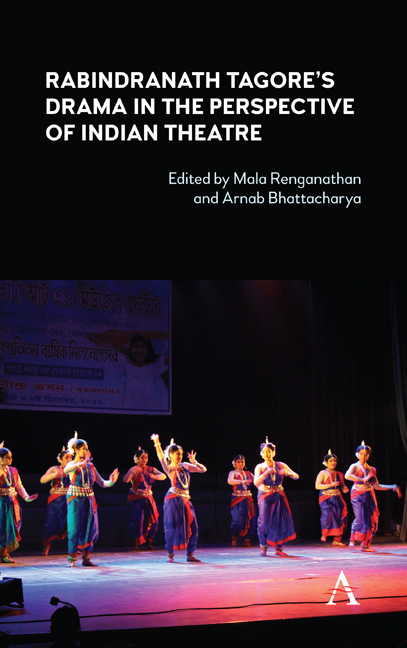Chapter 11 - Valmiki Pratibha and Its Afterlife
Published online by Cambridge University Press: 20 January 2022
Summary
In the first production of Valmiki Pratibha in Tagore household at Jorasanko in north Kolkata, Rabindranath himself played the role of Valmiki and his niece Pratibha played the role of Saraswati. It was a home production in more senses than one – all the performers were part of the extended family, and the audience comprised family and close friends. The makeshift stage was within the precincts of their sprawling mansion, and no professional help was sought in any aspect of stagecraft or costume design. In 1886 when the play was first staged, Tagore was 25 years old and Kolkata was the burgeoning capital of the British Empire in the East. An amateur production by the members of the family in an aristocratic household far from their seat of feudal power was in many ways the forerunner of the impending changes in the country. The sociocultural implication of this or the enormous possibilities opened up by the amalgamation of Indian myth and European music was not readily recognized. The performance was hailed by the closet audience. Since then, in more than a hundred years of its existence in Bengal's cultural heritage, Valmiki Pratibha has been produced several times both by professional and amateur groups that tried to maintain the authenticity of a dance drama by Tagore. Most of these productions, bereft of the significance of the first performance, are predictable and good.
In Tagore canon, dance drama which is a form of dramatic recital through song and dance is unique. This is a form of performance that is exclusive to his repertoire. Unlike his other plays, these musical plays have never been part of any syllabi, though Tagore is taught widely in Bengal. Though the dance dramas are performed both by professional and amateur groups, these are not as popular or as widely known as his songs.
Valmiki Pratibha, the first in a series of seven such plays, was written in 1881 after his return from England. It is in part inspired by European music with158 which he became familiar during this period of sojourn and is based on an episode from the Ramayana.
- Type
- Chapter
- Information
- Rabindranath Tagore's Drama in the Perspective of Indian Theatre , pp. 157 - 166Publisher: Anthem PressPrint publication year: 2020

